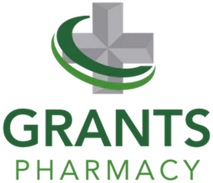Your Cart is Empty
Pharmacy Information
Our experienced pharmacists can help you with any medical queries that you may have. We have private consultation rooms in each pharmacy so your query can be kept confidential. All patients in Ireland, whether GMS (medical card), DPS (drugs payment scheme), LTI (long term illness) or Hi Tech, are free to fill their prescriptions in ANY pharmacy in the country, so why not give Grant’s Pharmacies a try and you will not be disappointed.
Drug Payment Scheme
No family’s monthly prescription bill should be over €80. If you present your PPS number in one of our pharmacies, we will help you to register for the Drug Payment Scheme. All medicine costs are tax deductible using the Med 1 tax form, we can provide you with a statement of your purchases.
Prescriptions
Order Prescriptions
We can also prepare your prescription in advance if you fill out our prescription order form for your local pharmacy here or you can phone your order in to your local pharmacy.











